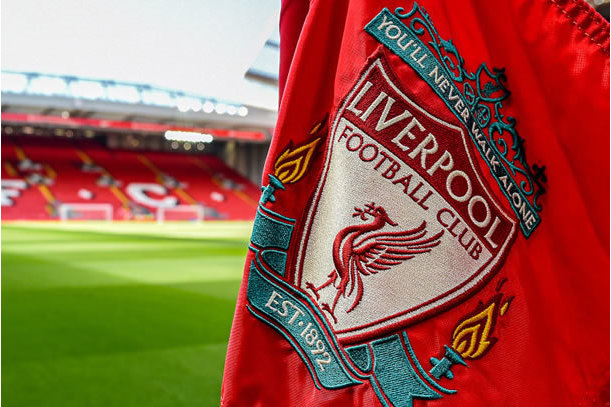Latest News
Europe’s leading football clubs embracing sustainability

News Highlight
English Premier League is perceived as the most sustainable football league among fans in Brand Finance’s research.
Liverpool FC is perceived to be the most sustainable football brand in Europe’s top five leagues according to a new report, the Football Sustainability Perceptions Index 2023, produced by leading brand valuation consultancy, Brand Finance. The club had an overall score of 86/100 across the three key sustainability metrics – namely Environment, Social, and Governance (ESG).
Liverpool’s strong ESG score is underpinned by the consideration amongst fans that the team is well run and managed off the pitch, a statement sent to Financial Nigeria by Brand Finance said. It engages in extensive community projects, primarily through Liverpool’s own initiatives ‘The Red Way’, ‘LFC Foundation’, and ‘Red Neighbours programme’. Liverpool has also been vocal in communicating the positive strides the club has made towards becoming a truly sustainable club, further building its reputation amongst fans, and securing its position at the top of the ranking.
“It is no surprise that football clubs are beginning to feel pressures from fans, owners, sponsors, broadcasters, leagues & regulators about clubs’ actions regarding ESG matters,” said Hugo Hensley, Associate Director of Brand Finance. “While the results from our extensive fan survey show that a small number of clubs have made significant strides in their commitment to ESG matters and communication of this, there are still substantial opportunities for further enhancement.”
Real Betis are second in perceived sustainability following the success of its ‘Forever Green’ program. This is an open sustainability platform for companies and institutions that want to use football to increase awareness amongst the population about the reality of climate change. Fellow Spanish football giant Real Madrid followed closely behind in third, reflecting its continued effort to grow its environmental protection policy as a crucial component of its sustainability strategy. Key areas within Real Madrid’s environmental agenda include material and waste recycling and sustainable water usage. Both clubs are building a reputation as sustainability champions, subsequently leading the way in fan perception in Spain and Europe alike.
English Premier League (EPL) is perceived as the most sustainable football league among fans in Brand Finance’s research. The world’s richest domestic football league has taken positive steps forward in recent years, such as its successful initiative the ‘Premier League Works Scheme’. This supports young people to develop their personal and social skills and equips them with the confidence and the experience they need to make a transition back into education, access training, or gain employment. 25 top clubs now work with local partners to help increase opportunities for those in local communities.
The EPL has also committed to achieving net-zero emissions by 2040. According to Brand Finance, widespread changes have begun to happen, with most teams encouraging the use of public transport to games. Some clubs also promote car-sharing schemes and pricing advantages for multi-occupancy of cars. This demonstrates positive steps in the right direction and has partly contributed to its sustainable perception amongst fans.
Brands are increasingly under pressure to demonstrate positive action in relation to the environment and climate change.
“When maximising sponsorship revenue, sustainability is a meaningful differentiator,” Brand Finance said. “Resultantly, many clubs have recently taken on environmentally focused partnerships. For Example, Tottenham Hotspur Football Club recently partnered with battery technology, electric vehicle, solar, and critical power services company VivoPower. Through this sponsorship, Tottenham were in turn able to engage a brand that would assist them in bringing awareness to their own sustainability objectives. VivoPower undertook a review of Tottenham Hotspur’s stadium and training centre to explore future net zero carbon solutions. These sustainable energy solution proposals included rooftop solar panels, battery storage and custom microgrid controls.”
The report also highlights the Emirates Group, a brand well known for its involvement in football sponsorship. As an airline, Emirates operates in an industry that is inherently damaging to the environment because of its high emissions, the report notes while acknowledging that Emirates, like many other organisations, strives to be leaders in environmental performance within their industry and therefore is looking to share this vision with sports brands, including a larger sponsorship deal with sustainability leader Real Madrid.
The statement concluded that sustainability-related sponsorship has become a key priority for many corporates. Clubs can now leverage their sustainability perception to draw in stakeholders, in this case sponsors, both benefiting the environment and using this as an area for potential growth for their brands.
The top 10 ranking is completed (in this order) by Udinese, Stade de reims, RC lens, Real Sociedad, AC Milan, SC Freiburg, and Nothingham Forest. EPL giants Manchester United and Arsenal FC rank 12th and 13th, respectively.
Related News
Latest Blogs
- What Ould Tah’s tenure at BADEA reveals about his AfDB candidacy
- Implementation strategy crucial for the success of 12-4 education policy
- A senator’s suspension threatens the right of representation
- Tinubu’s promising revolution in infrastructure development
- Has Tinubu’s economic reform started working?
Most Popular News
- Artificial intelligence can help to reduce youth unemployment in Africa – ...
- Nigeria records $6.83 billion balance of payments surplus in 2024
- Tariffs stir inflation fears in US but offer targeted industry gains ...
- Tinubu appoints new Board Chair, Group CEO for NNPC Limited
- CBN net reserve hits $23.1 billion, the highest in three years
- Soaring civil unrest worries companies and insurers, says Allianz









